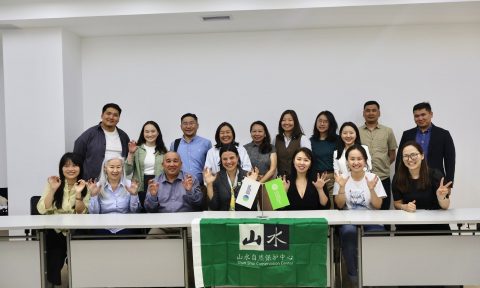Recap: Webinar on challenges and opportunities in pastoral territories of life in Asia
This article is originally published by ICCA Consortium
The ICCA Consortium Members Shan Shui Conservation Center and Kalpavriksh facilitated the webinar, which was held on March 22, 2024; four speakers from different countries with long experience in grassland conservation and development were invited to share stories from their regions
By Shan Shui Conservation Center and Kalpavriksh (ICCA Consortium Members)
Grasslands are a vital ecosystem, home to a wide variety of animals, plants, pastoralist Indigenous Peoples, and traditional communities. However, grasslands face threats such as degradation and climate change, which pose many challenges for the pastoral territories of life.
Pastoralists manage and conserve various ecosystems and natural resources, such as water, soil, and biodiversity, through unique governance systems. Pastoral territories of life are tangible manifestations of the deeply intertwined relationships between people and nature. They form resilient systems adapted to diverse ecological, economic, and social realities.
Over generations, pastoralists have learned to live with uncertainty, which has proved extremely useful, especially in the face of climate change, mass extinction, biodiversity loss, and other human-induced environmental challenges.
In this context, in a spirit of continued collaboration on these issues, the ICCA Consortium Asia and Pacific mega-region brought together a diverse group of stakeholders for a webinar titled “Challenges and opportunities in pastoral territories of life in Asia.”
On March 22, 2024, Members of ICCA Consortium, Shan Shui Conservation Center, and Kalpavriksha facilitated the webinar. The webinar featured four speakers from different countries who shared their experiences in grassland conservation and development. The speakers had extensive experience in their respective regions, and the event aimed to share valuable insights and stories.
This event was a platform to highlight the importance and diversity of pastoral territories of life in Asia and address their threats and challenges, fostering a sense of shared responsibility and action.
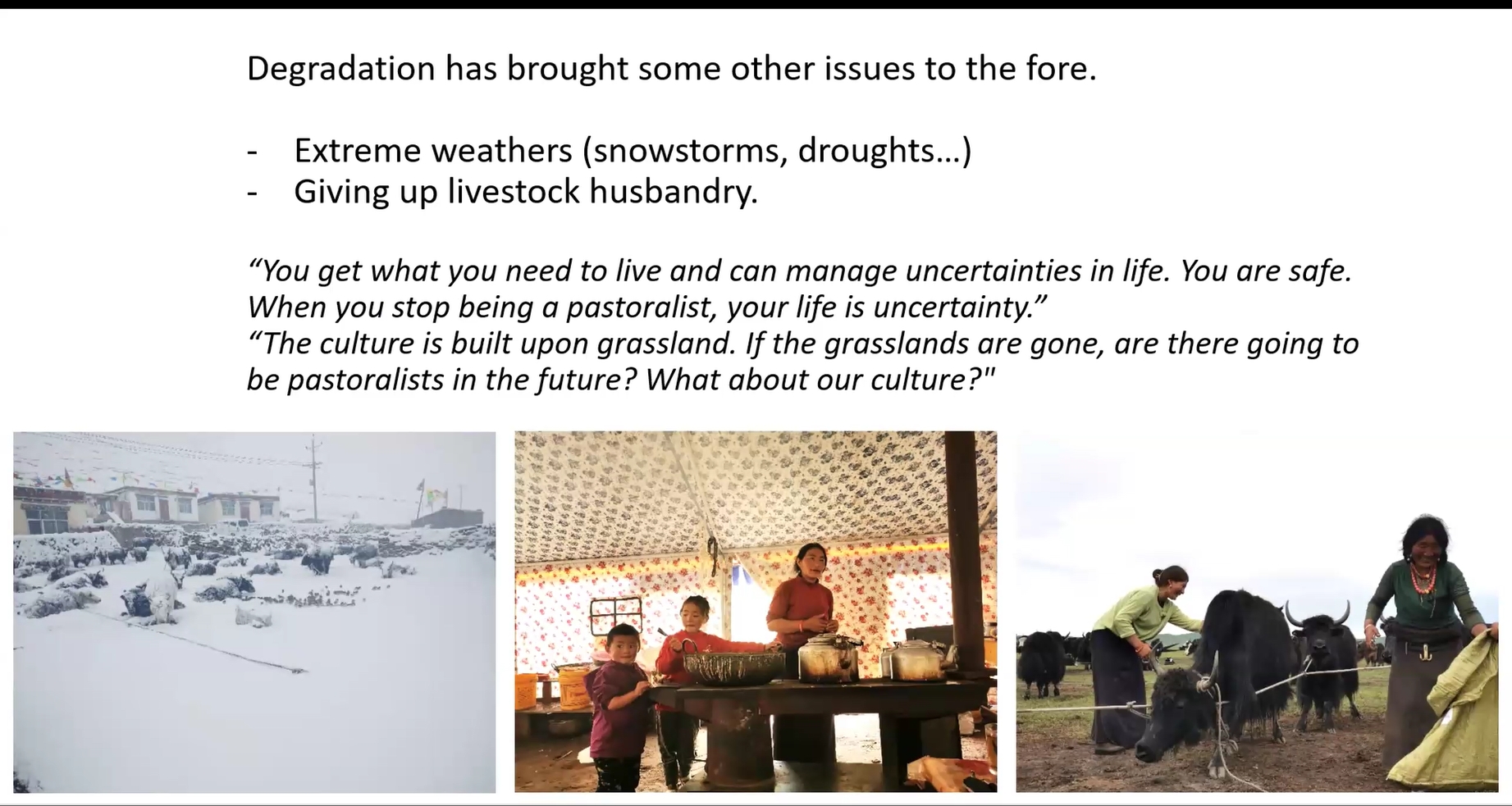
Huxuan Dai, a PhD student at Xi’an Jiaotong-Liverpool University, brought a unique perspective to the webinar. Her work on the “adaptive management of Tibetan pastoral social-ecological system facing the challenge of grassland degradation” provided valuable insights into the restoration and conservation of alpine grassland in pastoral communities in China. Her case study underscored the multifaceted causes of grassland degradation, including climate change and human activities, and the active role of local communities in restoration experiments.
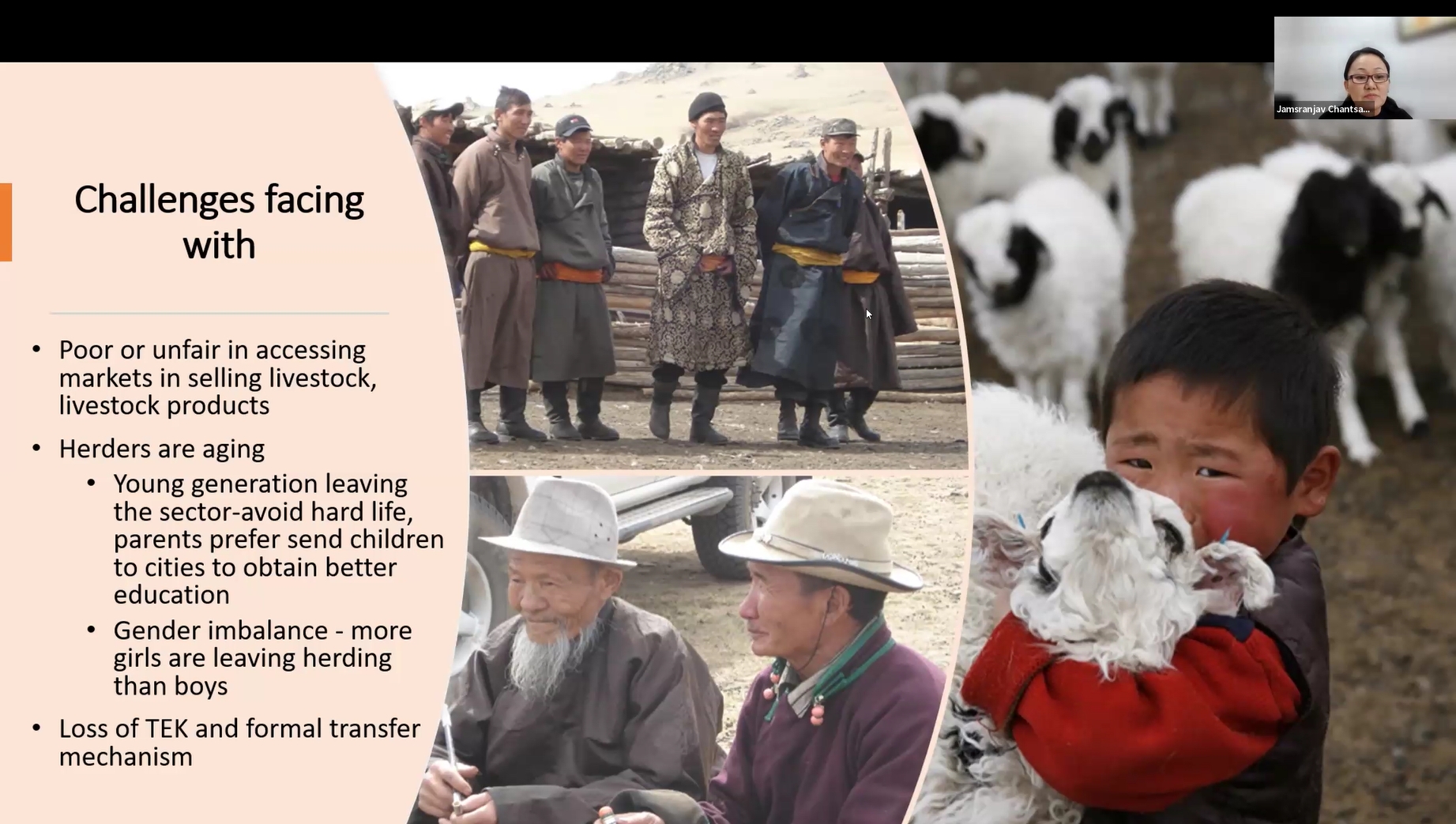
Dr. Chatsallkham Jamsranjav from Community Collaboration for Peoples and Nature in Mongolia, with more than fifteen years of experience working in the country’s agriculture sector, shared the case study of pastoral communities and grassland conservation. Her case study highlighted the importance of valuing local herders’ traditional knowledge and the co-learning and co-creation of conservation projects between scientists and local communities.
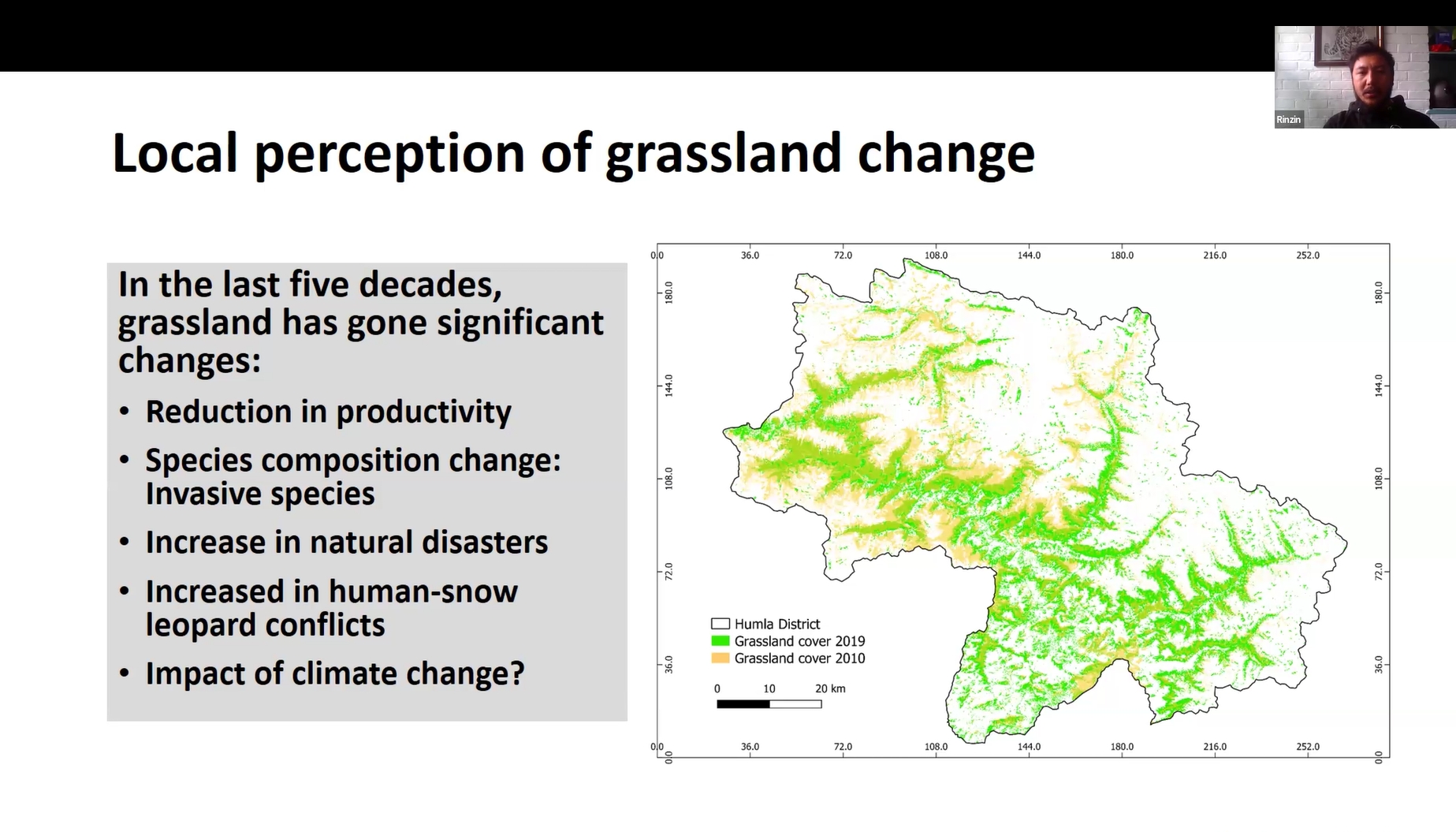
Rinzin Phunjok Lama, an international award-winning conservation biologist focusing on snow leopard research and conservation in the trans-Himalayan region of Nepal, shared a case study on snow leopard and grassland conservation in Nepal. This case study showed us how the changing landscape and society influence herders in Nepal, and the conservation of wildlife, such as snow leopards, is deeply connected to the grassland and people’s lifestyles.
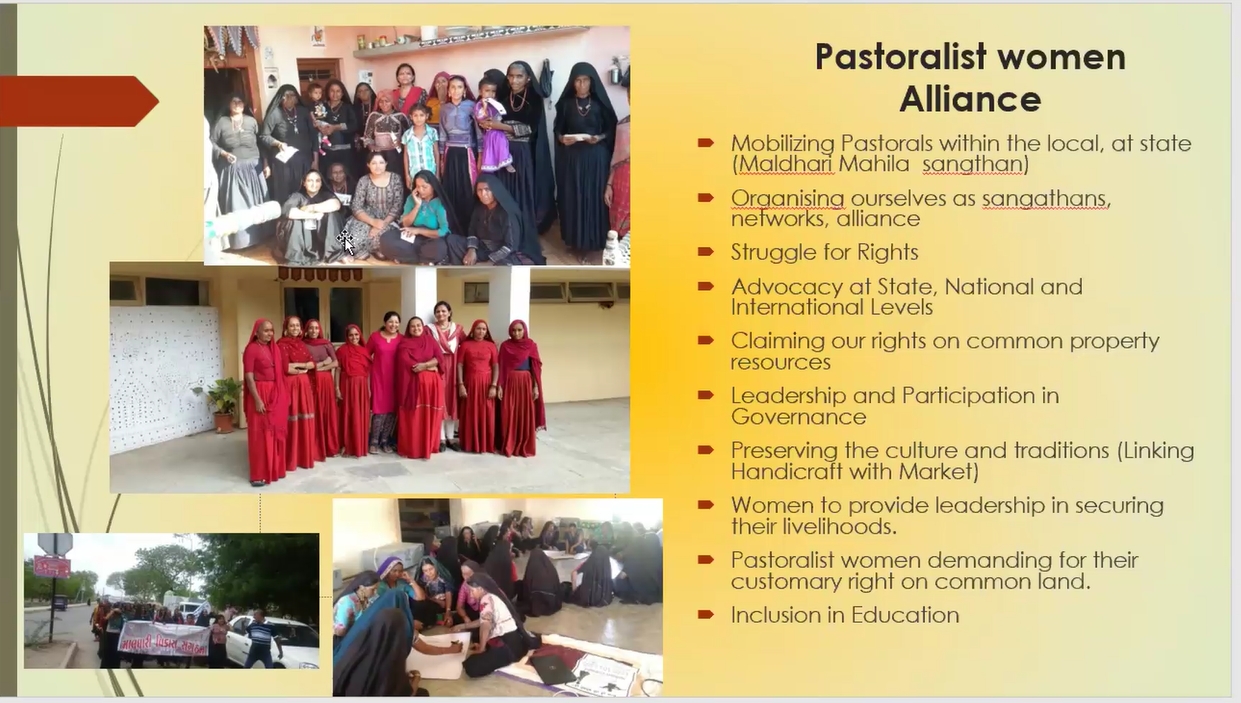
Bhavana Rabari, a founding member of the Pastoralist Women Alliance in India, shared a case study on pastoralist women and grassland restoration. The study covered nomadic self-perception, culture, clothing, and traditions, the current challenges they face, especially those for pastoral women, and how they empower women through the practices of the Pastoralist Women Alliance.
Lastly, Dr. Gao Yufang, a conservation scientist and environmental anthropologist affiliated with the InterAsia Initiative at Yale University, commented that although we used different words to describe the grassland in various contexts—as evident in the presentations of the webinar—in all cases, the pastoralists play an essential role ecologically and culturally. He said that we must learn from these case studies to see how we can address these shared challenges in a rapidly changing environment.


